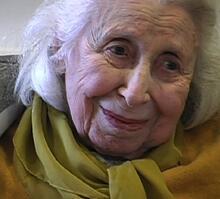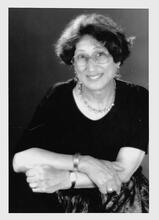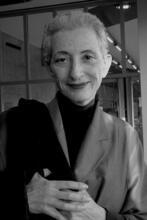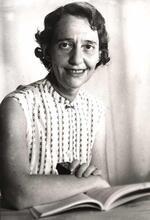Grace Schulman
Grace Schulman is an award-winning American poet, memoirist, and educator who holds a Distinguished Professorship at Baruch College. She is the former director of the 92nd Street Y, the former poetry editor for The Nation, and has translated the poetry of T. Carmi and Pablo Antonio Cuadra into English. In 2019, Schulman was inducted as a member of the American Academy of Arts and Letters; in addition to earning the Frost Medal for Distinguished Lifetime Achievement in American Poetry (2016), she has been awarded four Pushcart Prizes, the Aiken Taylor Award and the Guggenheim Fellowship for Poetry, and “Best Poem of 2004” by American Scholar, among several other accolades.
When asked about the role Judaism played in her life, Grace Schulman responded that being Jewish “is an immense cultural privilege … [because] it leads to knowledge of other languages and cultures” (Schulman, personal communication). Schulman’s poetry reflects this sentiment, for it is in her poems that the reader may travel to a variety of edifying spheres wherein time and space evanesce. Though her cultural identity is significantly connected with much of her writing, the environment in which Schulman was raised cultivated her as a poet and thinker.
Family and Early Life
Grace Waldman Schulman was born in 1935, in New York City, to Marcella and Bernard Waldman. Marcella, a sixth-generation American Jew, was educated in Portugal. Bernard, an immigrant from Poland, studied at University College, London, and in Germany. The Waldmans raised Grace on West 86th Street, in an environment about which she later reflected, “The sophistication of it was stifling in a way, but kind and encouraging” (Schulman, personal communication). Her home was frequented by various intellectuals who, along with her parents, stimulated Grace to write poetry by the age of seven. At the age of fourteen, she met Marianne Moore, about whom she later wrote her doctoral dissertation. Moore remained an influential figure for Grace—and a “miraculous” friend—until her death in 1972. Marcella Waldman, also a writer, fostered her daughter’s interests and taught her how to type.
Education and Early Career
Schulman attended American University (B.S., 1954), Bard College, and the Johns Hopkins Writing Seminars. Between earning her master’s and doctoral degrees (1960 and 1971, respectively) from New York University, she worked briefly as a reporter. She became the poetry editor of the Nation in 1972 and a professor of English at Baruch College, CUNY, in 1973, during which time she also won fellowships from Yaddo, the Karolyi Foundation, and the MacDowell Colony. She worked as the director of the Poetry Center at the 92nd Street YM/YWHA from 1974 until 1985. She contributed significantly to studies in poetry with her writings on Marianne Moore, Ezra Pound, and May Swenson and her translations of T. Carmi.
Grace Waldman wed Jerome Schulman, a virologist, physician, and professor, in 1959. Of their 50-year marriage, she said “it has meant everything to me” (Matis). As a poet and as a scientist, Schulman says, they had in common the pursuit of “seeing” with “precision” (Matis). Their marriage lasted until Jerome’s death in 2016. Her memoir Strange Paradise (2018) chronicles their relationship, which she says “[was] a feast of contradiction: radiance and dissatisfaction; intense loyalties and devastating treacheries; freedom and the sacrifice, albeit willing, of independence; excitement and a kind of pleasant boredom” (Kirkus Review).
Poetry
Schulman’s first collection of poems, Burn Down the Icons (1976), is a creative response to Christian symbolism and poets who attracted her as a young writer. Her second, Hemispheres (1984), is largely about Israel and includes a poem (“Songs of my Fathers”) about her grandmother’s grandfather, Shmuel, a Romanian Jewish immigrant. Similarly in For That Day Only (1994), Schulman recalls the memory of her immigrant grandfather, David, from whom she acquired both her love of New York and her love of walking, in a salient poem, “Footsteps on Lower Broadway.” In this poem, Schulman expertly draws together three visions of New York—her grandfather’s, Walt Whitman’s, and her own—invoking a shared sacred space wherein certain “haunts” are experienced in various ways. The narrative itself is a tour through parts of the city sanctified by Whitman’s and Grandfather Dave’s meanderings, and develops out of a comparison of their perspectives on aspects of New York (e.g., a synagogue on Crosby Street).
Thus, Schulman’s fusion of such significant, ephemeral figures allow places to become more dimensional and substantive, layered with context, elevating the perspective of both the immigrant and the one whose family had been in New York for generations. Schulman’s other collections of poetry include The Paintings of Our Lives (2001), Days of Wonder (2002), The Broken String (2007), Without a Claim (2013), and The Marble Bed (2020). In 2010, Schulman released First Loves and Other Adventures, a collection of essays that discuss her becoming a reader and writer and a passionate disciple and champion of poetry.
Honors
Throughout her esteemed career, Grace Schulman has won the mutual admiration of fellow poets and critics. W.S. Merwin, whom she considers one of several poetic influences, noted Schulman’s poetry reveals “delicacy of mind and ear and gentleness of spirit” (Merwin, cited in Schulman). Certainly, the work of Grace Schulman is deeply spiritual, drawing from a life lived in awe and a reverence for the intangible, the invisible, the sacred in the oft-mundane drama of being human.
Among many other decorations and awards, Schulman has received the Lucille Medwick Memorial Award from International PEN (1975), the Delmore Schwartz Award for Poetry (1996), the Aiken Taylor Award for Modern American Poetry (2002), a Guggenheim Fellowship (2004), and the Frost Medal for Distinguished Lifetime Achievement in American Poetry (2016). A four-time recipient of the Pushcart Prize and an inductee of The American Academy of Arts and Letters, Grace Schulman lives between New York and East Hampton.
Grace Schulman, personal communication with Monica R. (Hiller) Gebell, May 15, 1997.
Matis, Aspen. “An Interview With Grace Schulman” The Best American Poetry, edited by David Lehman, February 2021. https://blog.bestamericanpoetry.com/the_best_american_poetry/2021/02/an…
Schulman, G. Strange Paradise: Portrait Of A Marriage [Review of Strange Paradise by Grace Schulman]. Kirkus Review, May 23, 2018. https://www.kirkusreviews.com/book-reviews/grace-schulman/strange-parad…;
Schulman, Grace. The Paintings of Our Lives. Houghton-Mifflin Press, 2001.















